When I first implemented Words Their Way activities, I found it completely overwhelming.
At the time, our school was using Houghton Mifflin for reading instruction, which came with weekly spelling lists that were designed for third graders. As many of you have likely realized, these one-size-fits-all lists create a real instructional struggle in an elementary classroom.
Giving the same spelling list to an entire class robs most students of the targeted instruction they need, and addresses the needs of a very small percentage of our learners. Teaching this way was uncomfortable, so our team decided to begin teaching differentiated spelling within our reading block, using Words Their Way activities.
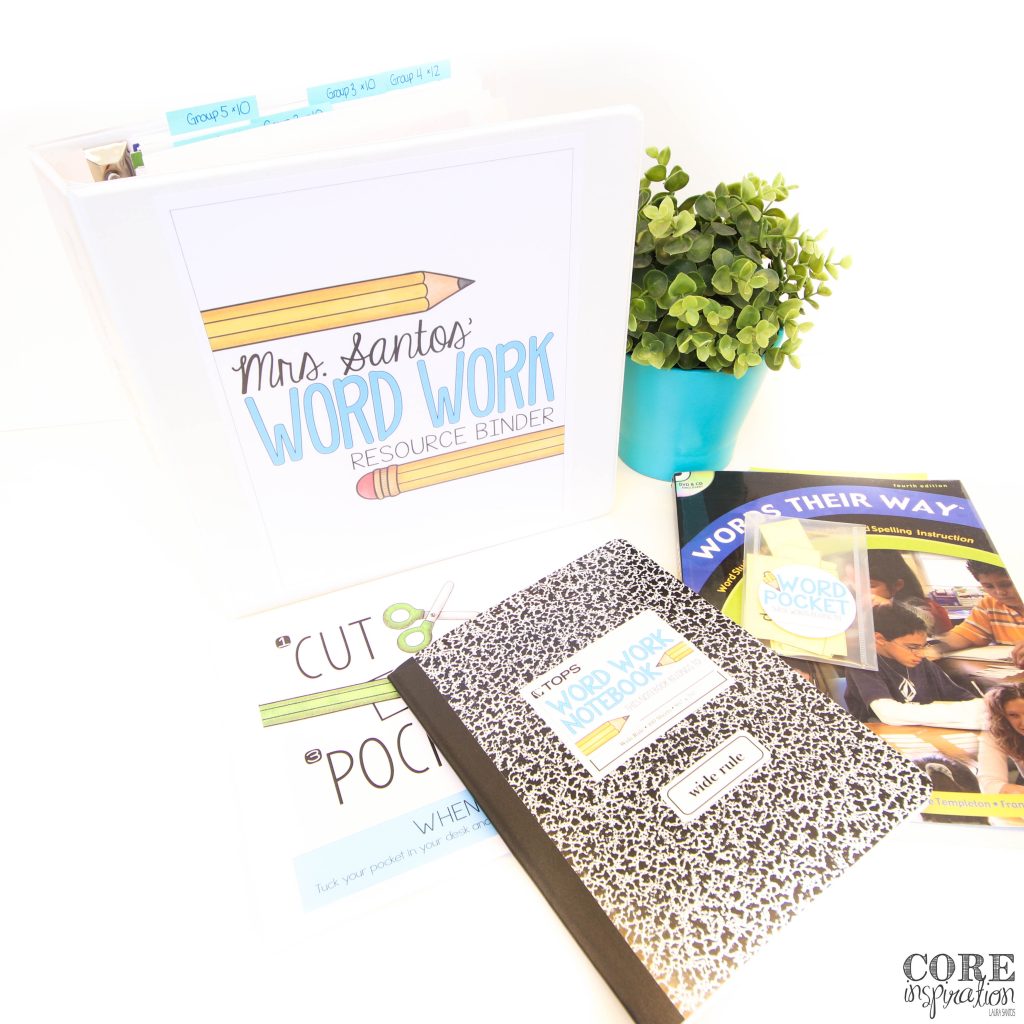
Due to the fact that Words Their Way activities were taught during our RTI block, I was only managing one or two lists, and introducing lists every two weeks. Still, I felt overwhelmed.
My two biggest mistakes at the time were:
- I was trying to squeeze word work practice into a 10-15 minute block of time, which is not nearly enough.
- I was trying too hard to teach “by the book” and use the Words Their Way sorts exactly the way the teacher guide suggested, which just isn’t realistic in most elementary classrooms where we are planning and teaching every subject.
Despite my struggles, I was still so inspired by the research behind the program and was determined to master this amazing tool for differentiating word work instruction.
When I switched schools and moved to second grade, everything started to click. I started reading blog posts about different approaches to using Words Their Way activities, dug deep into the teacher’s guide, and made a more realistic plan for how to successfully use it in my classroom. Years later, I am confident in my word study routines, and I am here to share the approach I use in my third grade classroom
Creating Differentiated Groups for Words Their Way Activities
At the beginning of the school year, I follow the steps for initially assessing and creating groups outlined in the Words Their Way teacher guide. I reassess and regroup my students each trimester. Typically, my third grade class of 25 students is differentiated into 4-6 word sort groups.
Preparing Words Their Way Activities for the Week
After setting up my differentiated groups and identifying the sorts for each group, I make a master spreadsheet of the sorts each group will be working on for that trimester. This spreadsheet includes the students within each group and the sort they will be working on each week.
Using this spreadsheet, I copy word sorts for each group for the entire trimester. You can read more about this process here. The sorts for each group are copied on a different color paper, making it easier to identify any word cards that may get misplaced during the week.
Each student gets two copies of each sort. One copy is kept in the classroom and used for our daily Words Thier Way activities at school. The second copy is kept in each student’s homework folder for nightly spelling/word study practice at home.
Inside my binder of master sorts, I place sticky notes on the page of the next sort that must be copied, along with the number of copies needed for each group. This makes subsequent trips to the copy room more efficient.
On Friday after school, I set the two copies of the upcoming sort on each student’s desk so they are ready to cut and label their sort when they come in the room first thing on Monday morning. This could also become a class job, but passing out the sorts doesn’t take me long, and is a little something that helps me prepare my mind for the week ahead.
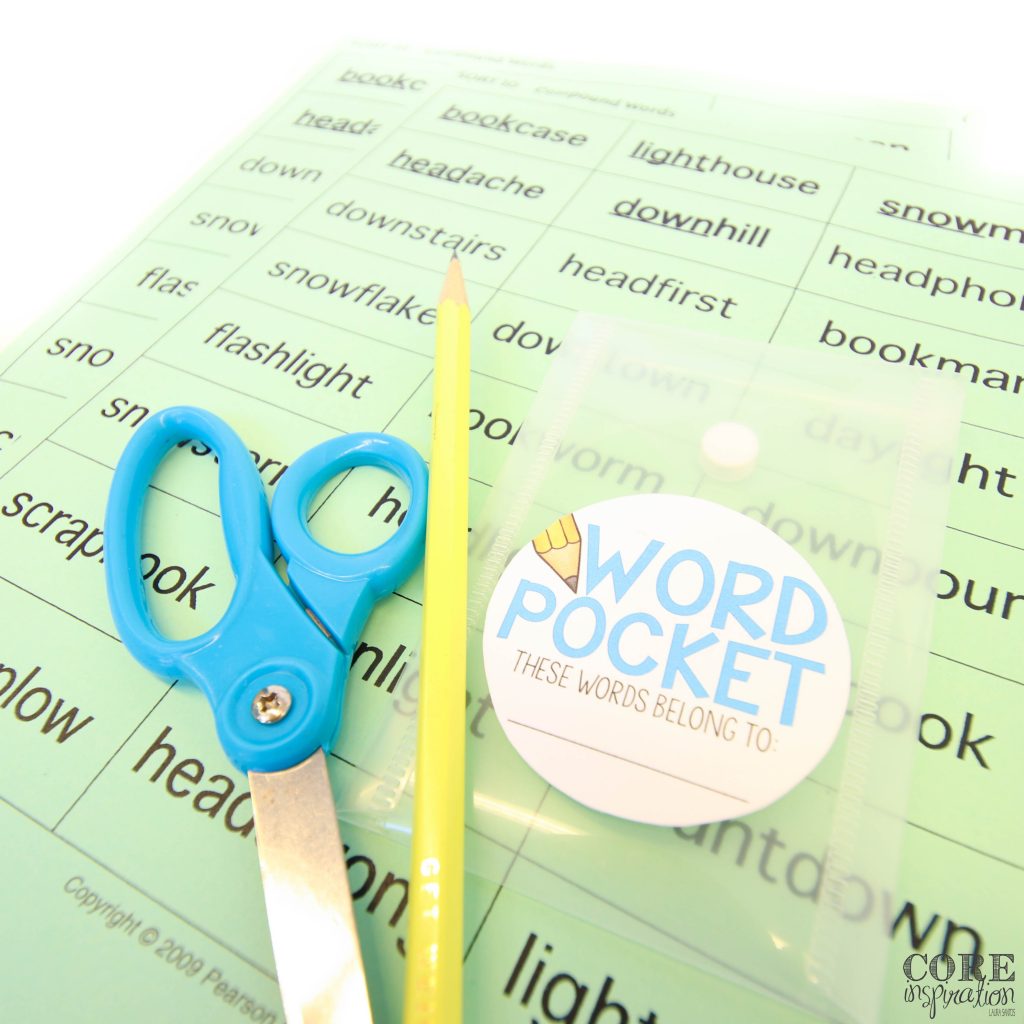
Weekly Words Their Way Activities Schedule
Each day of the week, we spend time completing Words Their Way activities in the classroom, followed by additional practice at home each night. Below is an overview of the activities we complete each day in preparation for our weekly word work/spelling assessment.
Monday’s Words Their Way Activities
On Monday morning students walk into the room and see their new sort sitting on their desk. During bellwork (the first 20 minutes a day), they slide one copy of their sort into their homework folder and complete their “Cut, Label, Pocket” routine with the other sort. They write their name or initials on the back of each sort card, cut the cards apart, recycle their scraps, and place their words in their pocket.
During our reading block on Monday, I do not teach a whole class reading mini-lesson or hold reading conferences. Instead, students jump right into reading and annotating and are called to the back table one word work group at a time to learn their sort for the week.
When teaching each group their sort, I use the lesson plans directly from the Words Their Way master books. After learning their sort, and sorting once at the back table, students return to their desks to complete the sort once more before tucking their words back into their pockets and resuming reading. During this additional sort at their desk, students are welcome to check in with other members of their word sort group if they need any support.
After all groups have been introduced to their sort, I follow up on any weekly word work reassessments that need to be completed (reassessments are explained in more detail under the “Friday” section).
Tuesday’s Words Their Way Activities
During our Tuesday word work block, students are given 30 minutes to independently “Sort and Write”. This activity comes directly from the Words Their Way teacher’s guide. Students sort their word cards at their seats, then write their words in sorted columns in their Word Collector’s Notebook.
Wednesday’s Words Their Way Activities
During our Wednesday word work block, the class works for 10-15 minutes completing a series of “speed sorts”. Again, this activity comes from the Words Their Way teacher’s guide. As students take their words out of their pockets, I project the Google timer on our whiteboard.
The first “speed sort” lasts for 3 minutes. Students sort their words as quickly as possible. If they finish before the 3 minutes is up, they can silently celebrate while others finish. Our expectations for a silent celebration are:
- Stay seated and silent so those still sorting can think clearly.
- Celebrate using hand motions, seated dance moves, or eye contact and a smile.
My students love this silent celebration time before the next sort. We then complete a second speed sort that lasts two minutes, and a final sort that lasts 1 minute. At the beginning of the year, these faster sorts are challenging for most students, but they quickly catch on to the routine and begin loving the challenge.
Thursday’s Words Their Way Activities
During our Thursday word work block, students are given 30 minutes to independently complete “Word Work Sentences” in their Word Collector’s Notebook. This activity is modified from the suggestions in the Words Their Way curriculum.
Each week, students select five words from their sort that interest them or challenge them in some way and use each word in a separate sentence. In the past, I have required students to write “juicy third grade sentences” that are filled with descriptive detail.
This year, I will be following the lead of one of my teammates and setting specific requirements for sentences that are more closely connected to our grammar standards. When students finish writing their sentences, I provide feedback on the spot. This is an easy way to boost student writing growth while practicing word work.
Friday’s Words Their Way Activities
On Friday before school, I refer to my spreadsheet as I assign each group their spelling test for the week using Spelling City. This website makes differentiated assessment seamless because all the Words Their Way lists are pre-loaded into their database. I simply log in and select the correct test for each group without the need to type every list each week.
During our Friday word work block, students are given 30 minutes to “Sort, Glue, Test”. Students sort their word cards and glue them into their Word Collector’s Notebook in sorted columns using a glue stick. This is a silent activity when students have one last opportunity to study their words before their weekly test. They then tuck their notebook away, pull out their Chromebooks, and begin their spelling test using Spelling City.
The test is automatically graded so students receive immediate feedback on their results. Those results are also immediately available on my account, so I can log in a view each student’s score. My third graders are required to score 80% or higher on their tests each week.
On the rare occasion that this score is not achieved, I email the student’s parent at lunch that day to inform them of their child’s score and request they continue to study the words over the weekend so the child can be reassessed the following Monday.
During any reassessment, students log in to Spelling City during our reading block on Monday and complete their test at their seats while the class works through the Monday routine described above.
On Friday after school, I repeat the same steps to prepare for the upcoming week of word work instruction.
Words Their Way Activities for Homework
Students are assigned word work homework on a nightly basis to further support their mastery of words each week. I am confident students who focus on the work Words Their Way activities we do in the classroom will be fully prepared to demonstrate mastery during their assessment each week.
Our parent community finds comfort in nightly spelling practice, so I send the following options home.
- Choice Homework Menu: The menu below is sent home as one approach for word study homework. Students select one of the creative options from the grid to complete each night.
- Guided Homework Menu: Many parents prefer to forego the choice menu option to make homework more efficient. If they prefer a more prescribed homework approach, these are the activities suggested each night:
I do not require students to submit any Words Their Way activities they complete for homework and do not use homework as an assessment score because I am unable to measure the level of independence with which each student completed their assignment.
Tweaking Words Their Way Activities For Your Unique Classroom
I am all about taking a strong curriculum and tweaking it. It is so important to remember that every classroom is so unique. The Words Their Way activities I have described above will not likely be a perfect fit for you because we are different people working in different classrooms with different students and different schedules.
One way I modify the traditional approach to using Word Their Way is only to regroup once per trimester. It is recommended by the teacher guidebook that students should pass with a score of 80% or higher at the end of each unit of sorts. I choose not to use these unit assessments because I do not have the bandwidth to regroup so frequently. I find regrouping every trimester still fosters wonderful student growth, and helps me keep my sanity.
I also like to incorporate student reflection into our word work routines and use two rubrics to guide this process. Students glue one rubric to the front cover of their word work notebook, which outlines expectations for each day’s Words Their Way activities. On the back cover of their notebook is a second rubric that outlines their ability to transfer what they’ve learned to other contexts, and their learning behaviors associated with word work.
Using Words Their Way Activities In Your Classroom
Finding a way to make your word study curriculum meet the unique needs of your students can be challenging, and I hope these tools & tips make the planning process easier for you. Your students are so fortunate to learn from someone who cares deeply about meeting their needs through quality differentiation.
If you have any questions or insight about how you use Words Their Way activities in your classroom, I would love to hear from you in the comments below. If you are interested in using the Words Their Way tools featured above, I have them ready for you here. Wishing you and your students all the best!

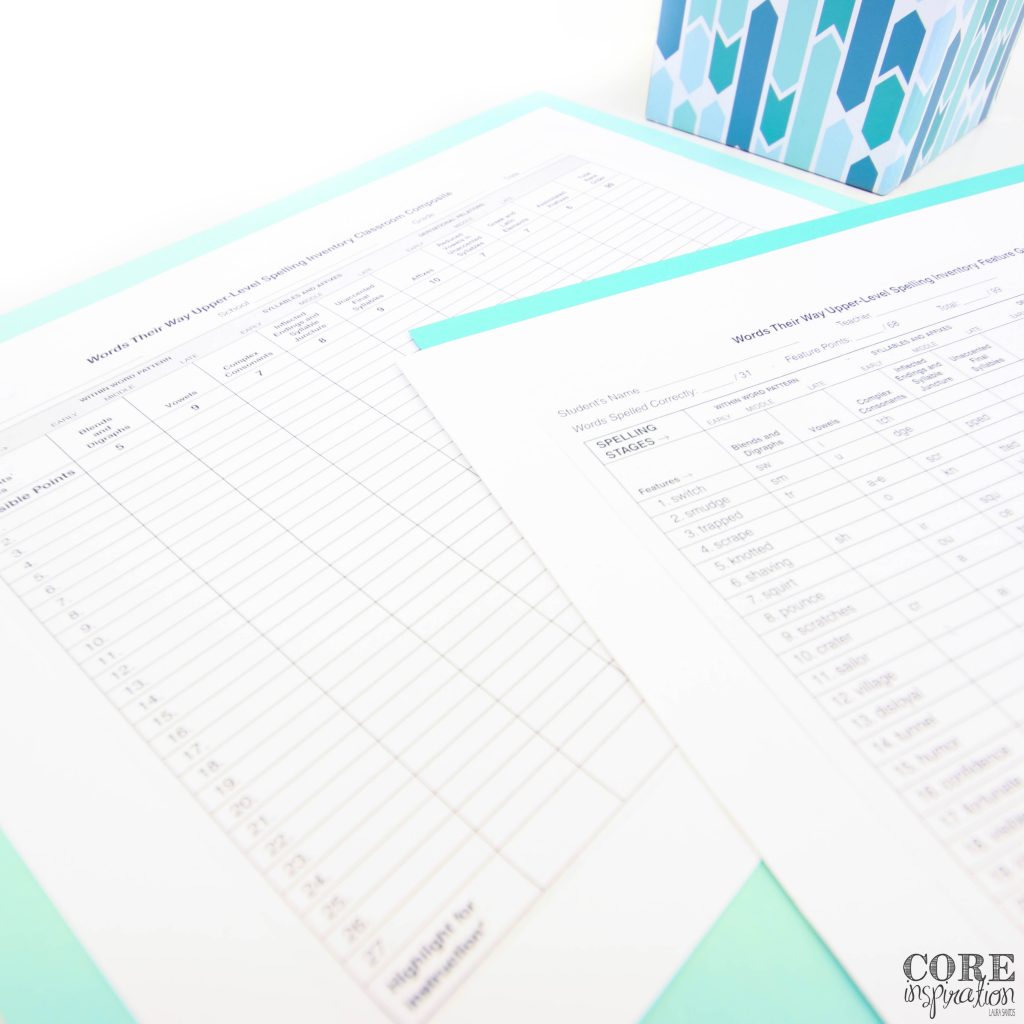
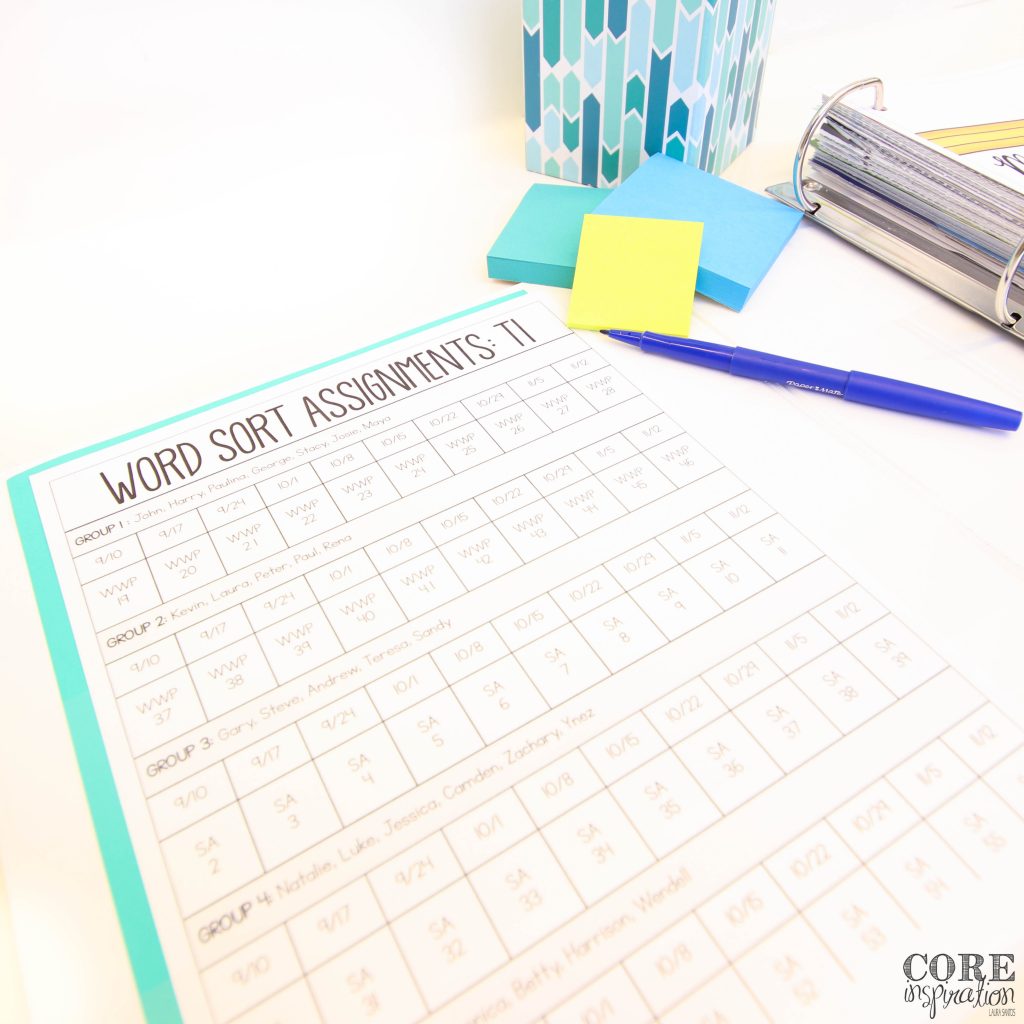
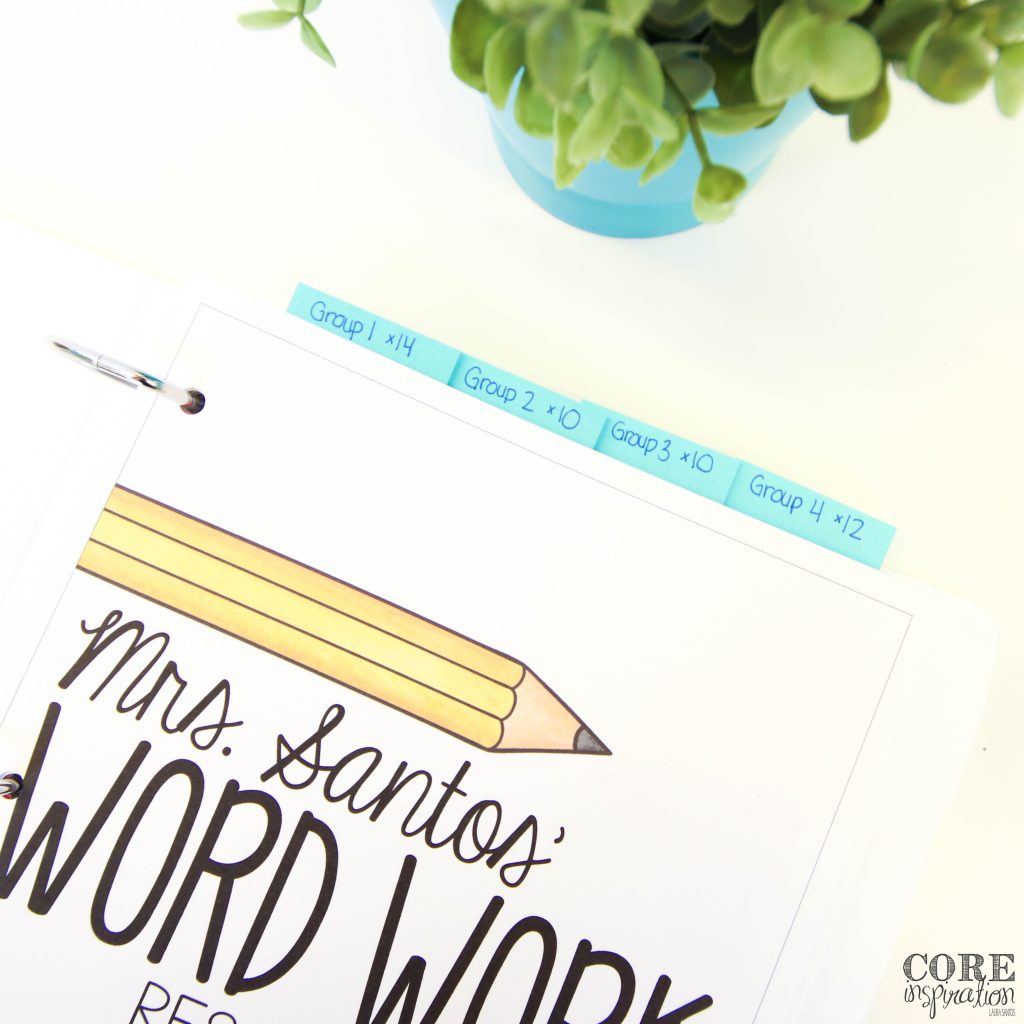
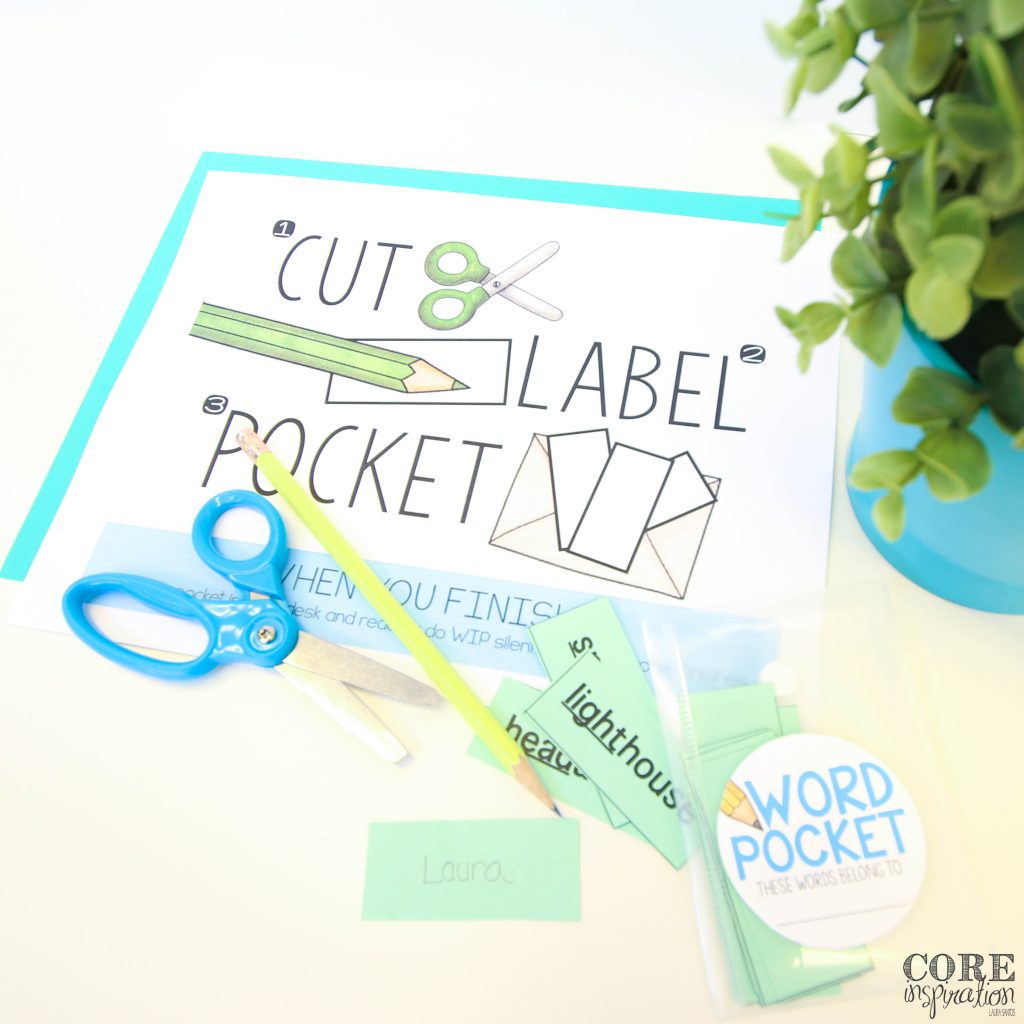

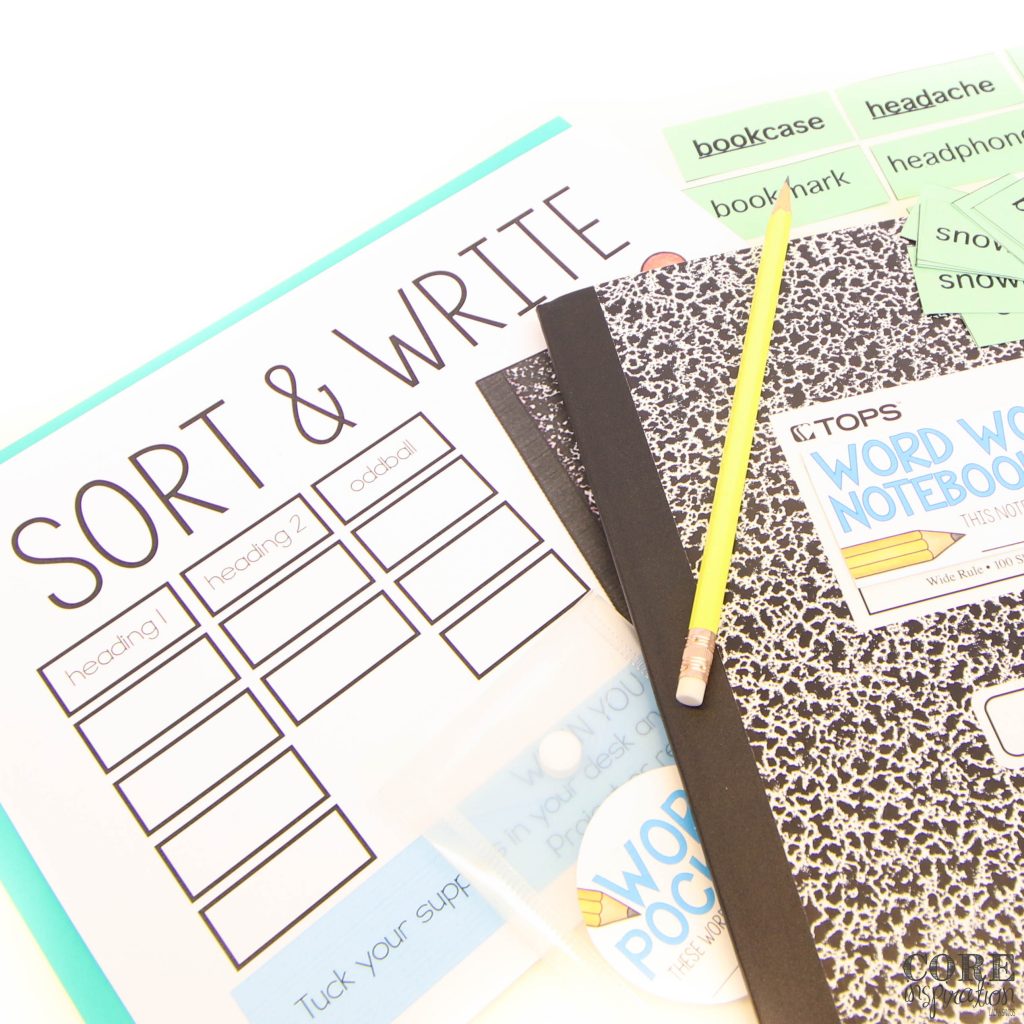
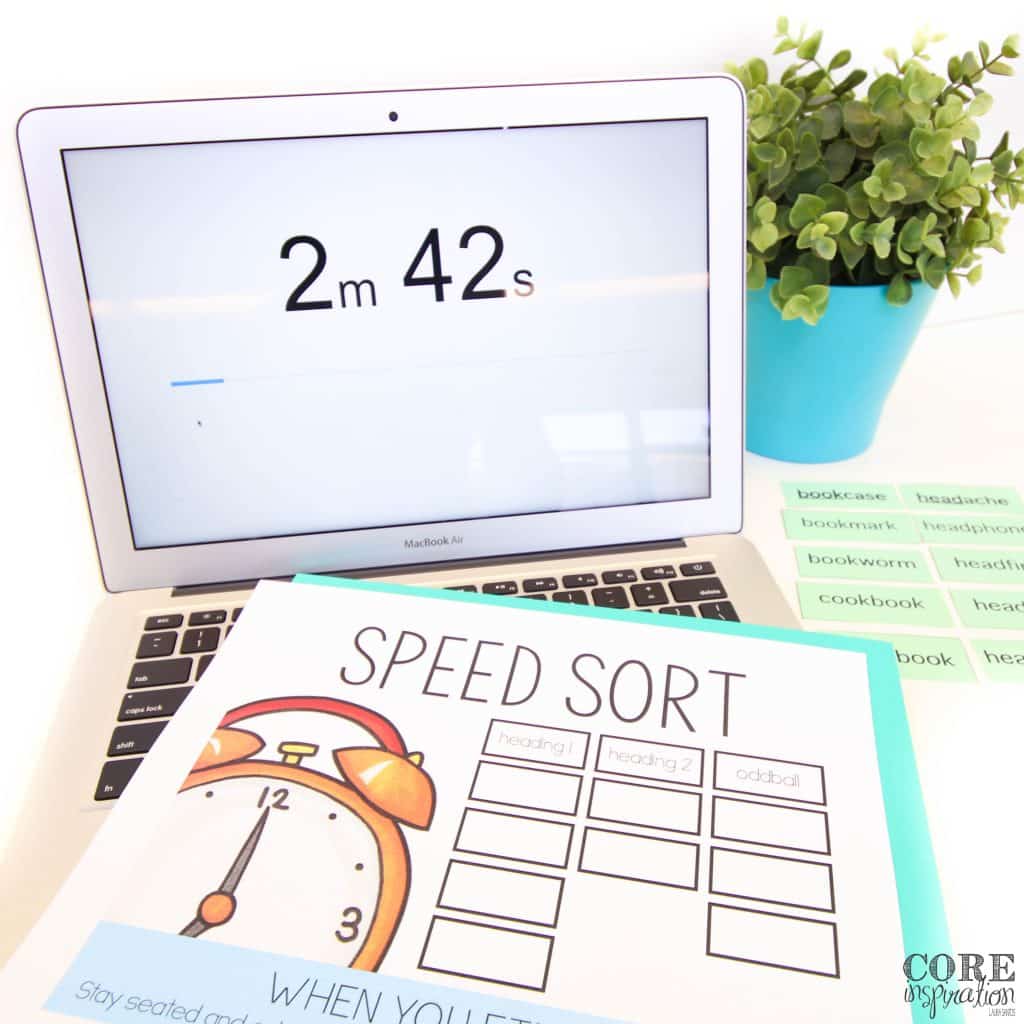
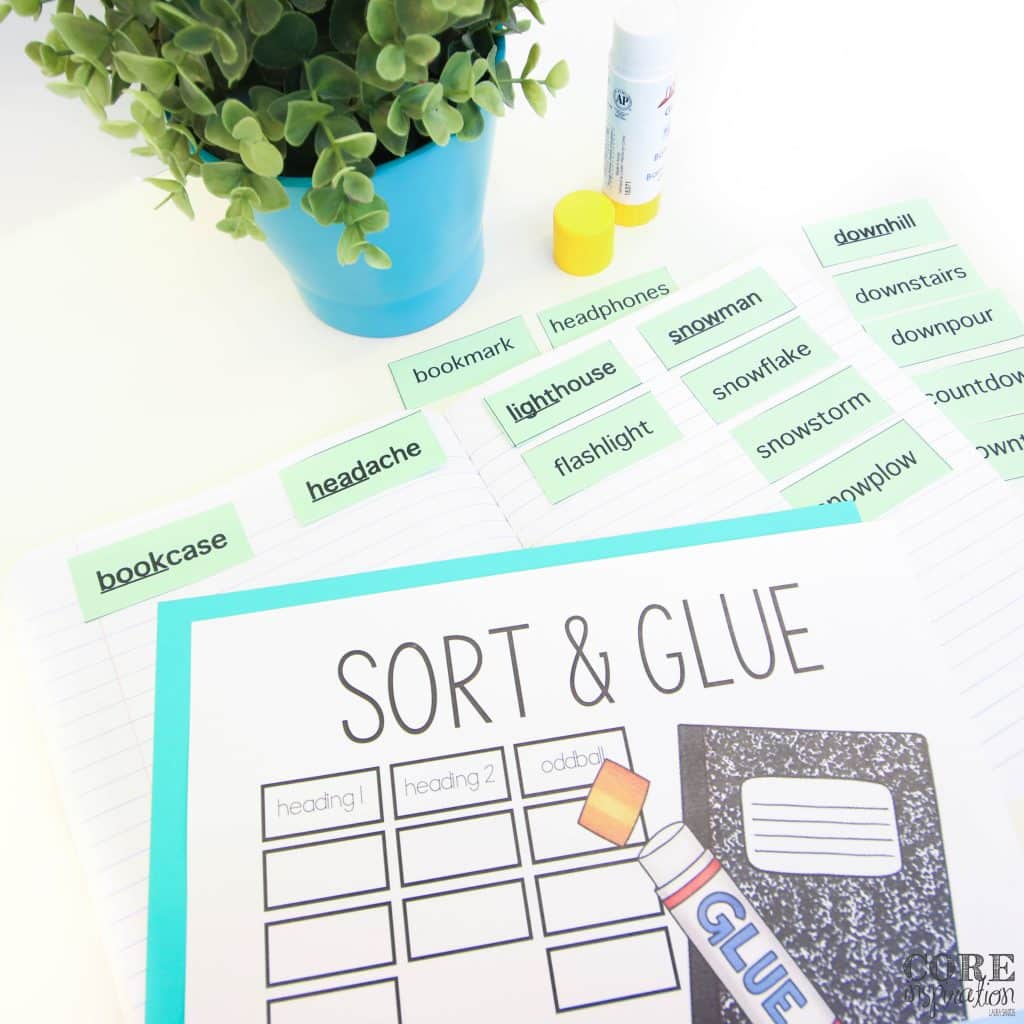
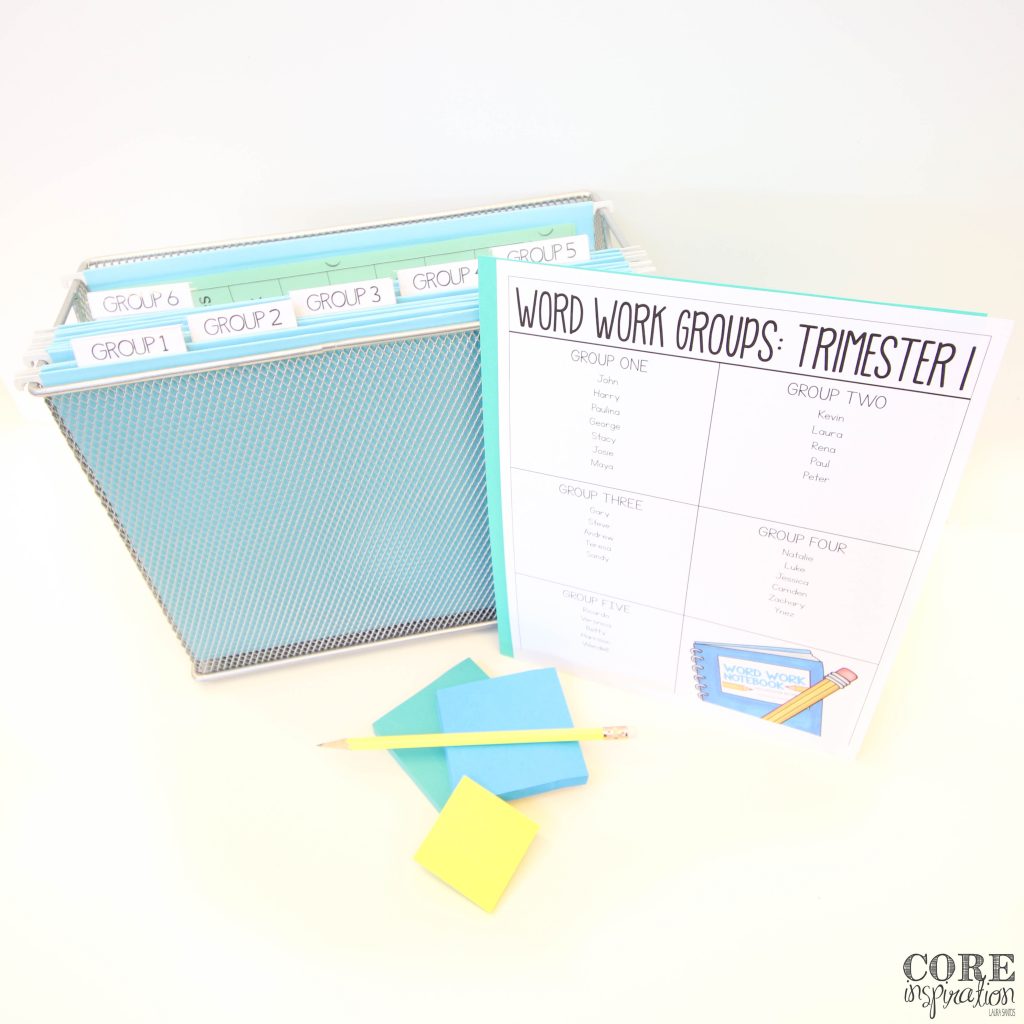
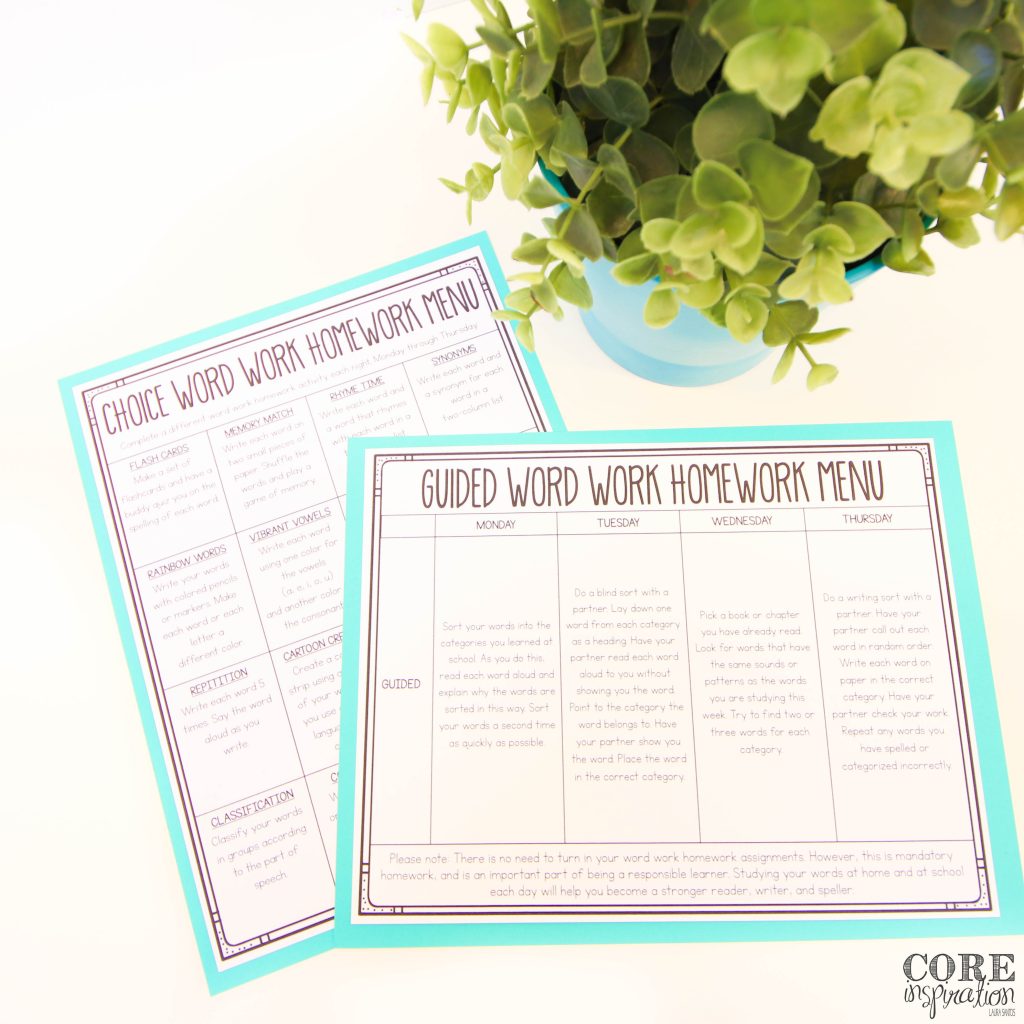
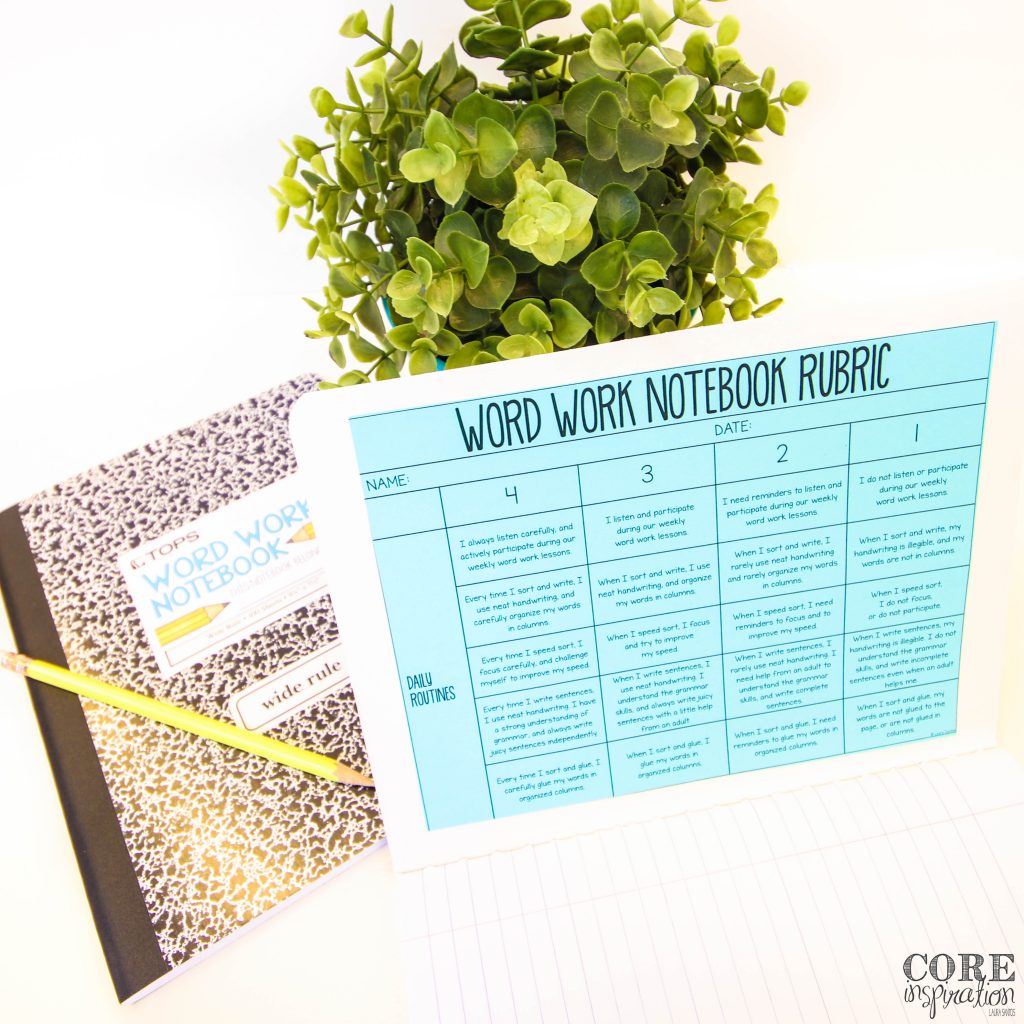
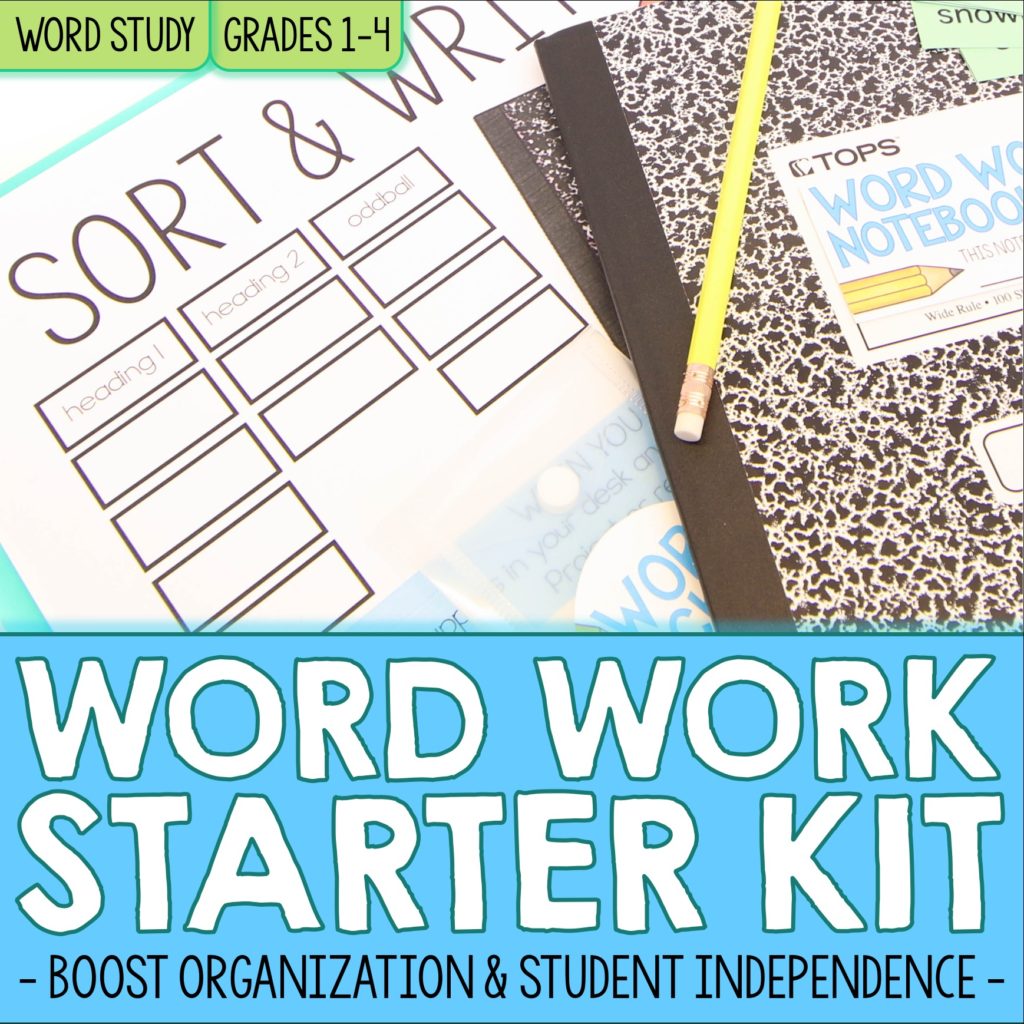
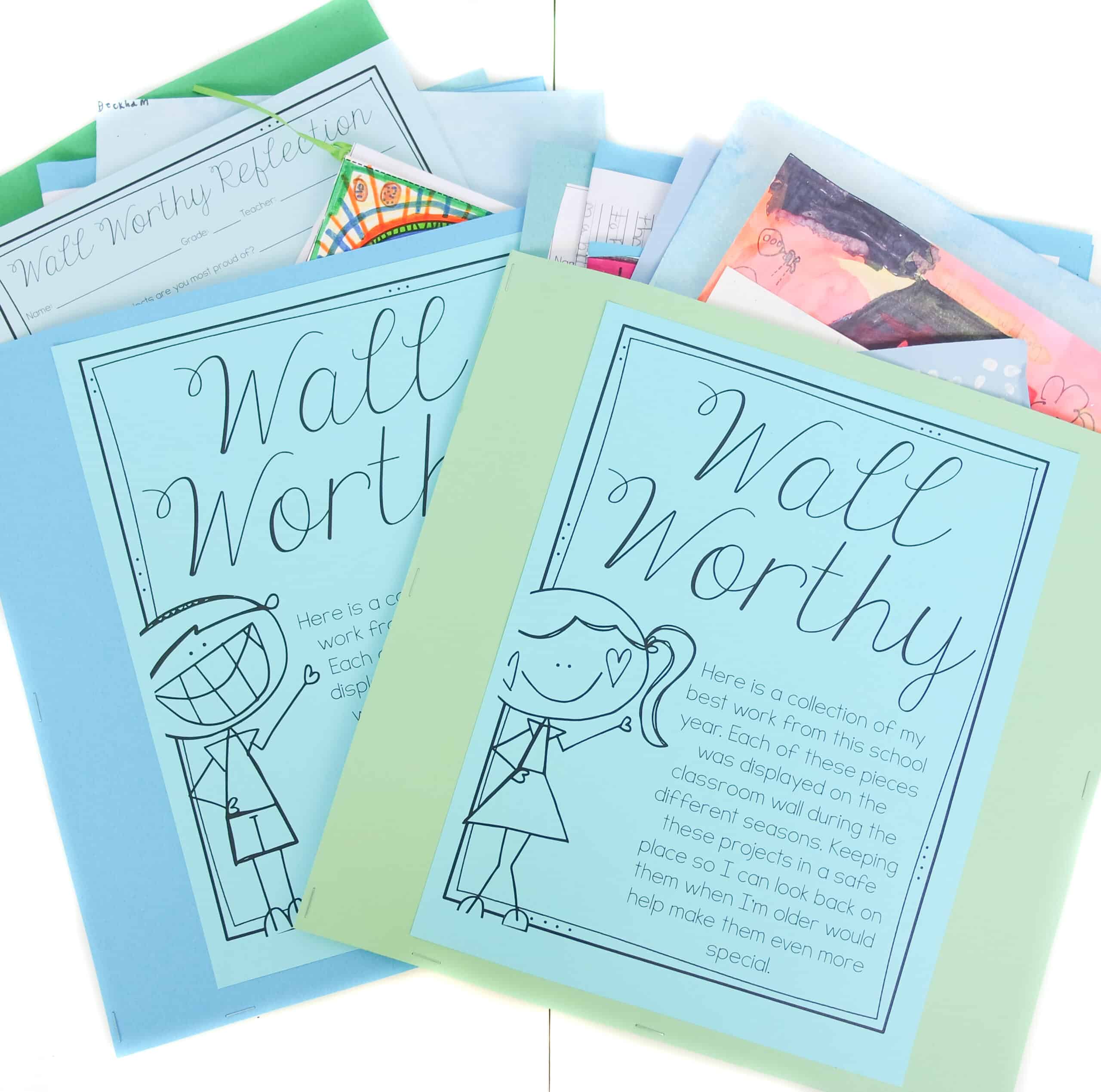
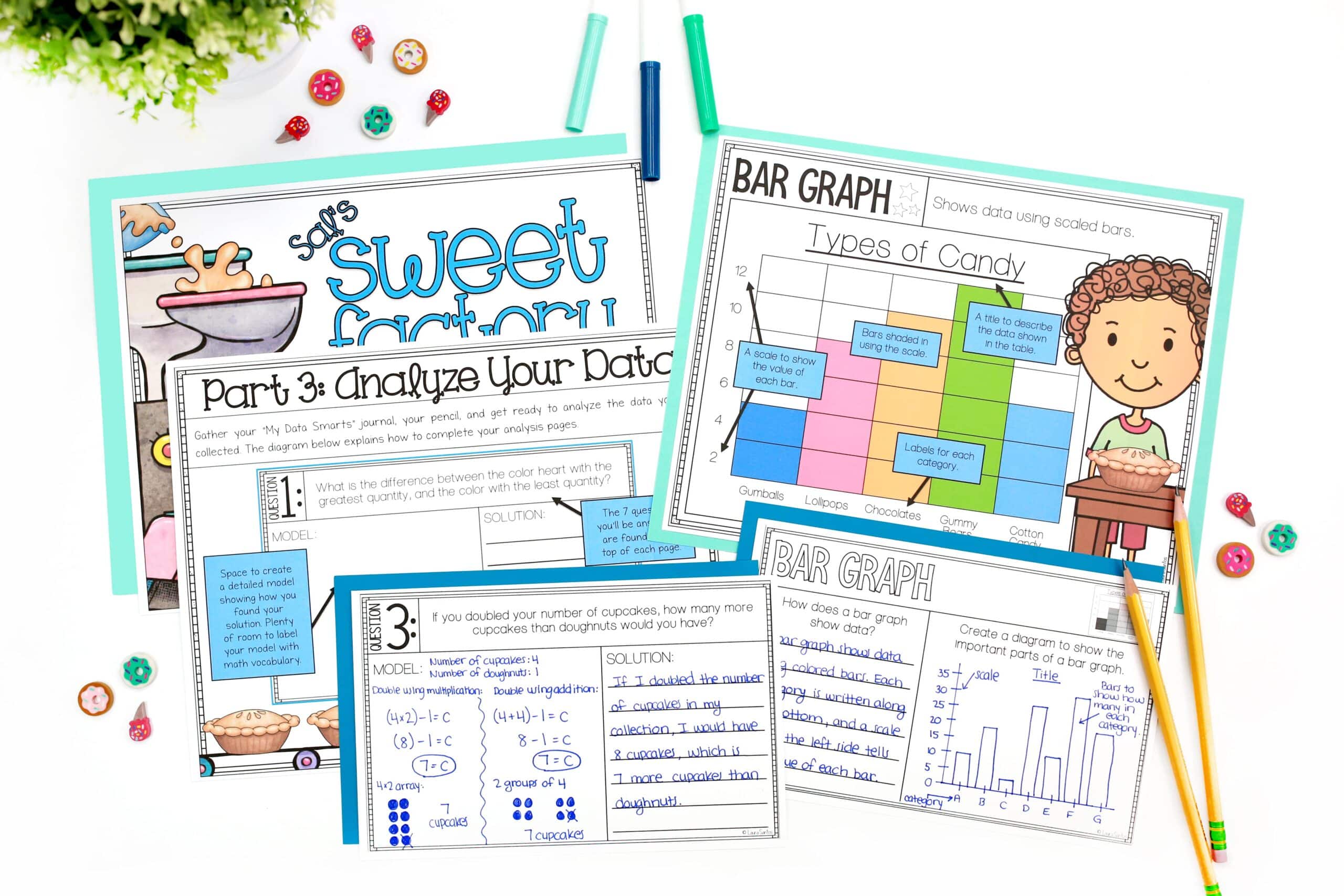
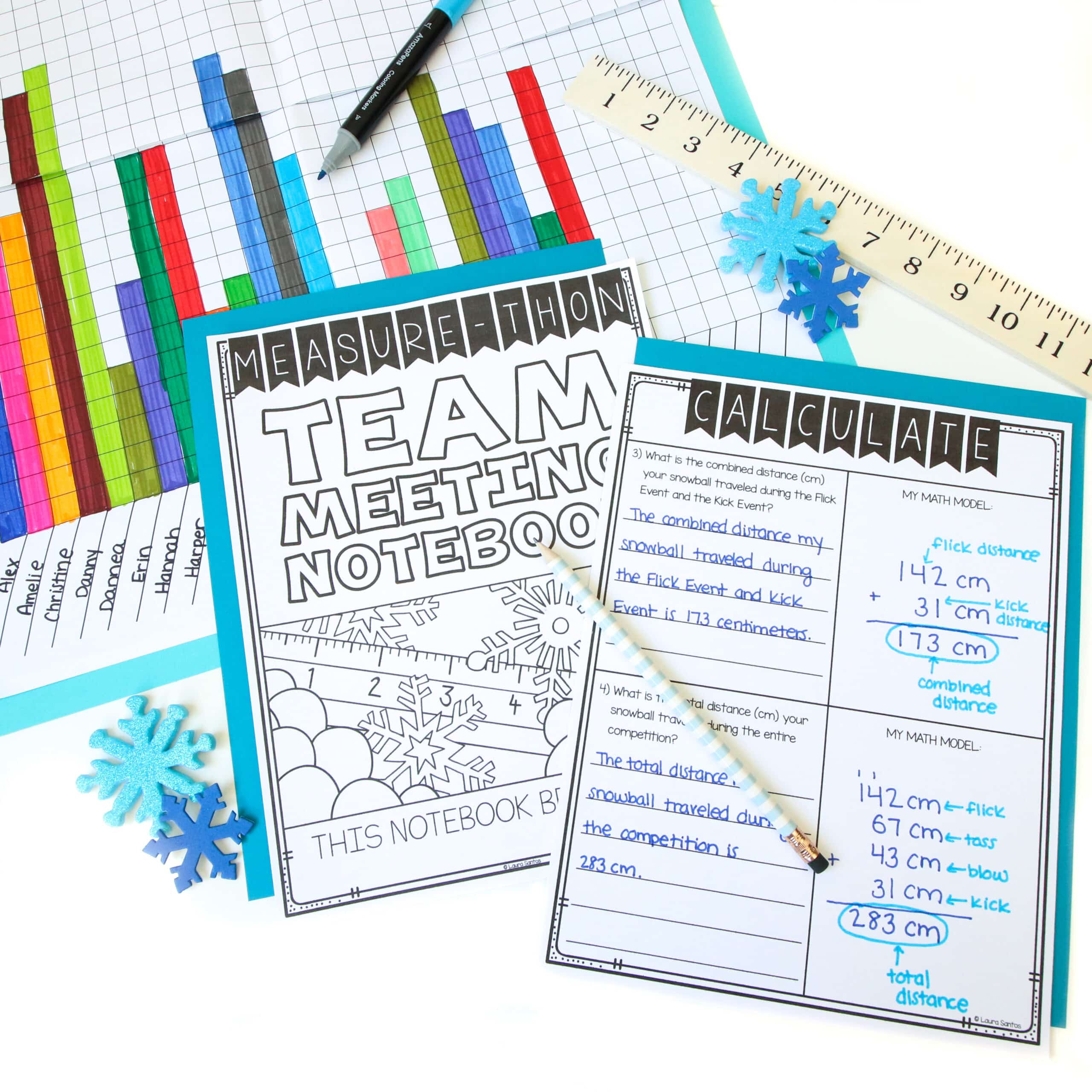

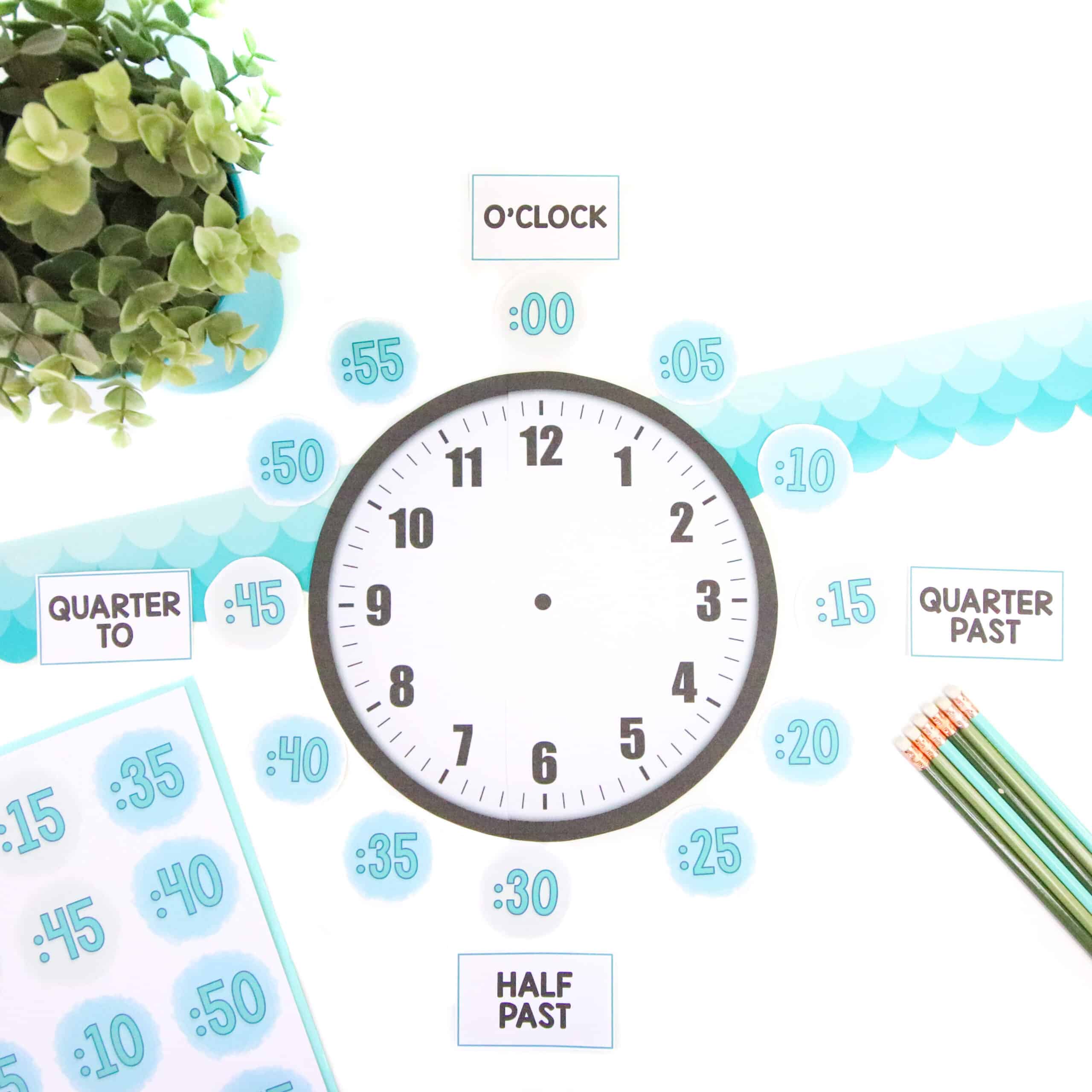
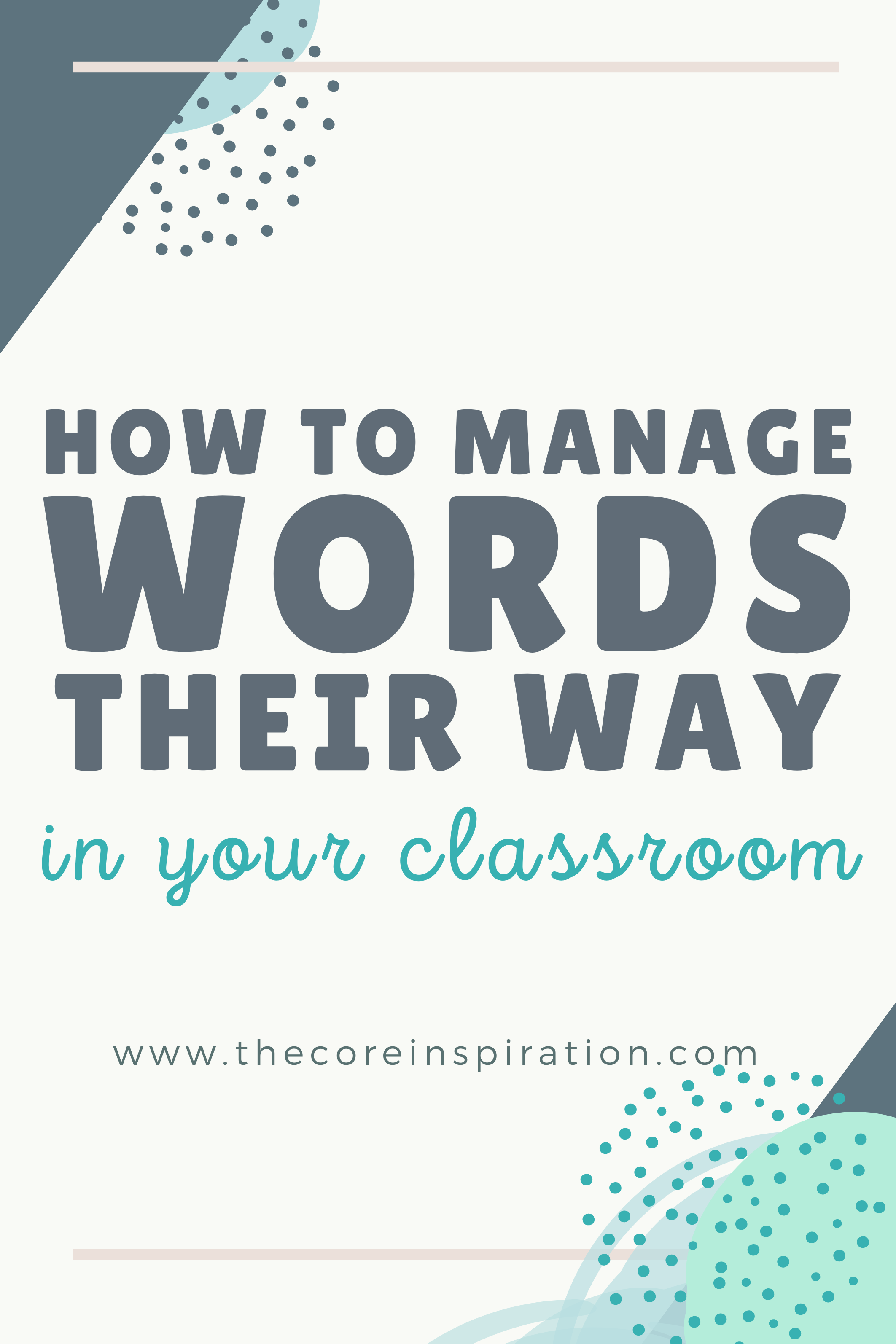
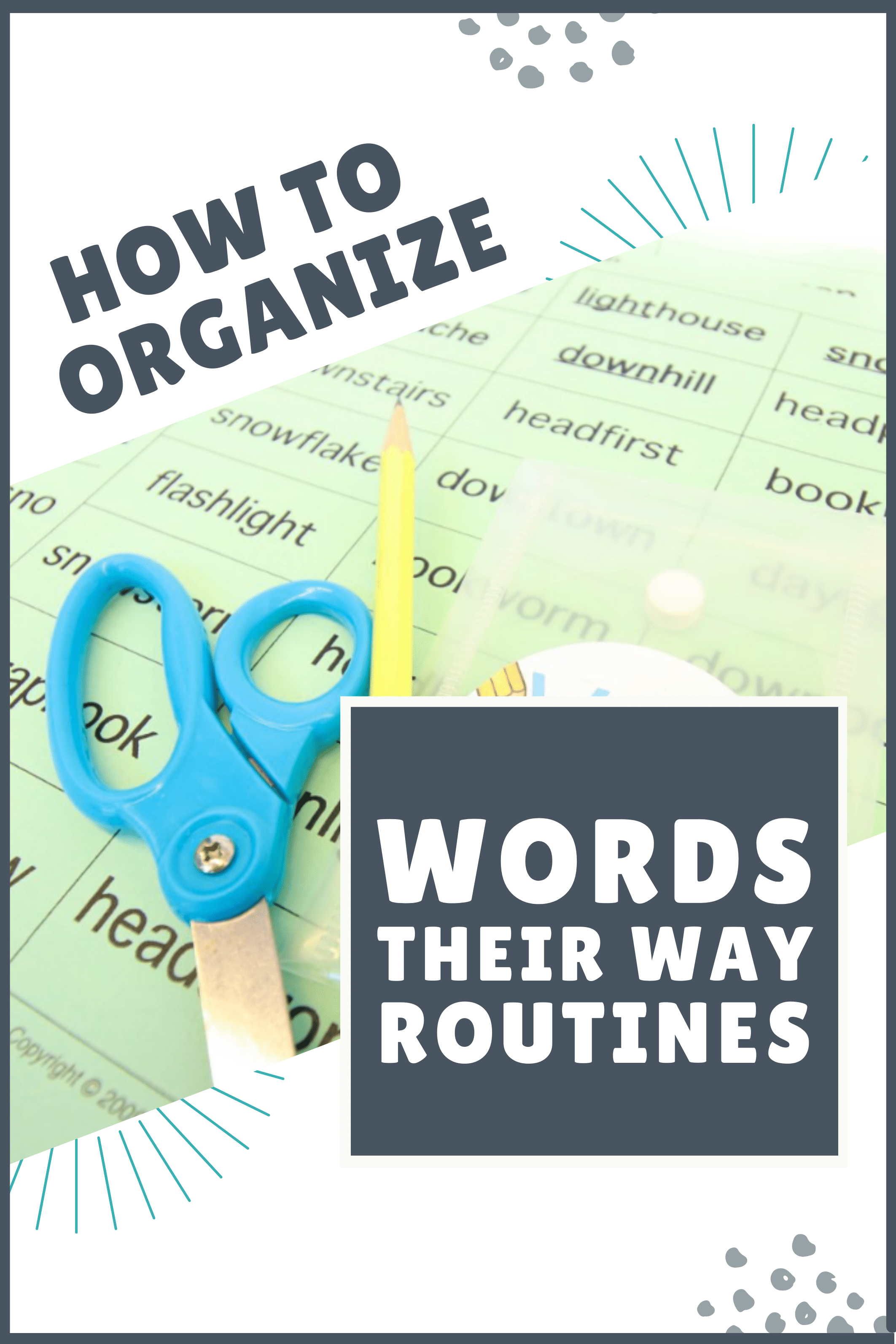
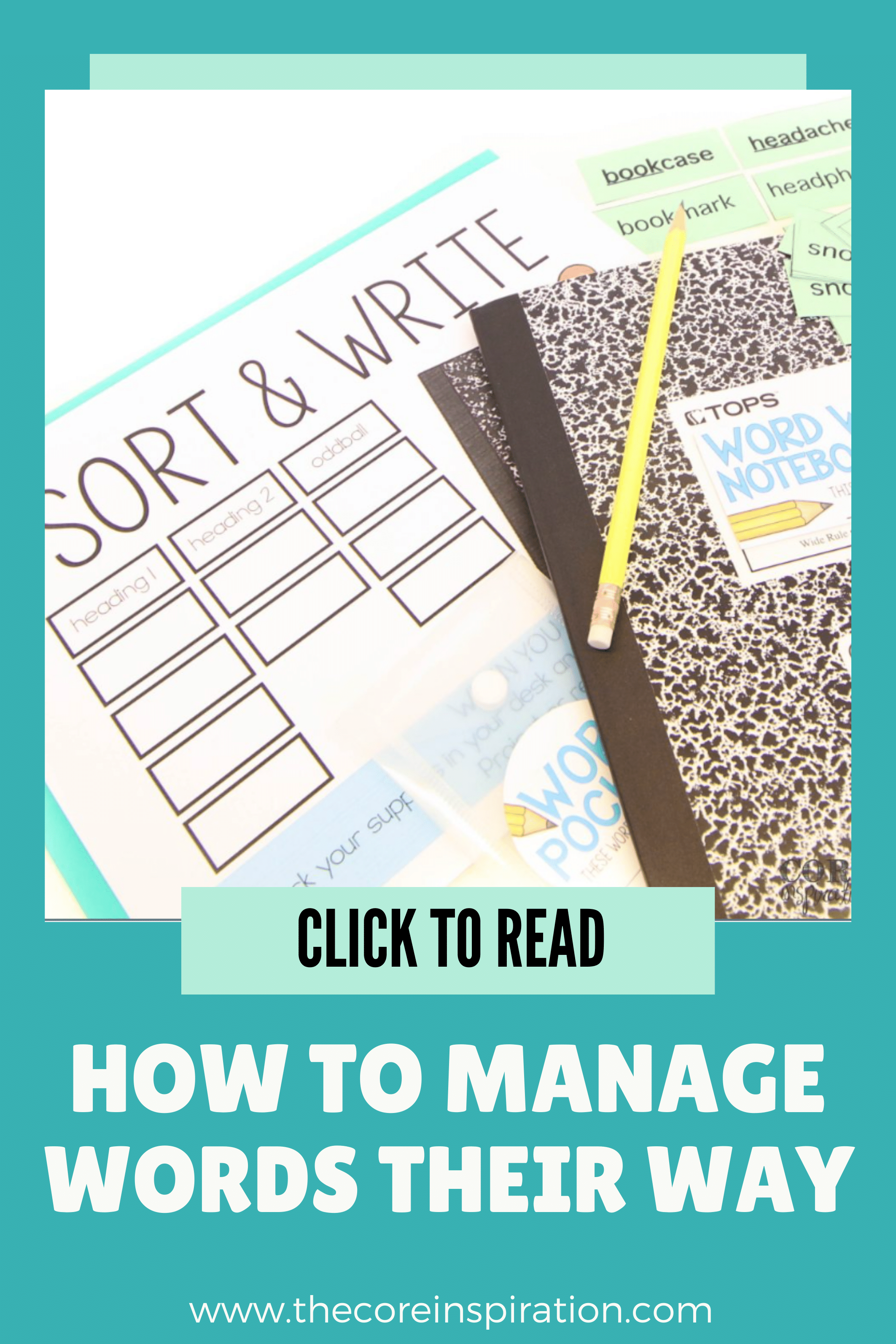
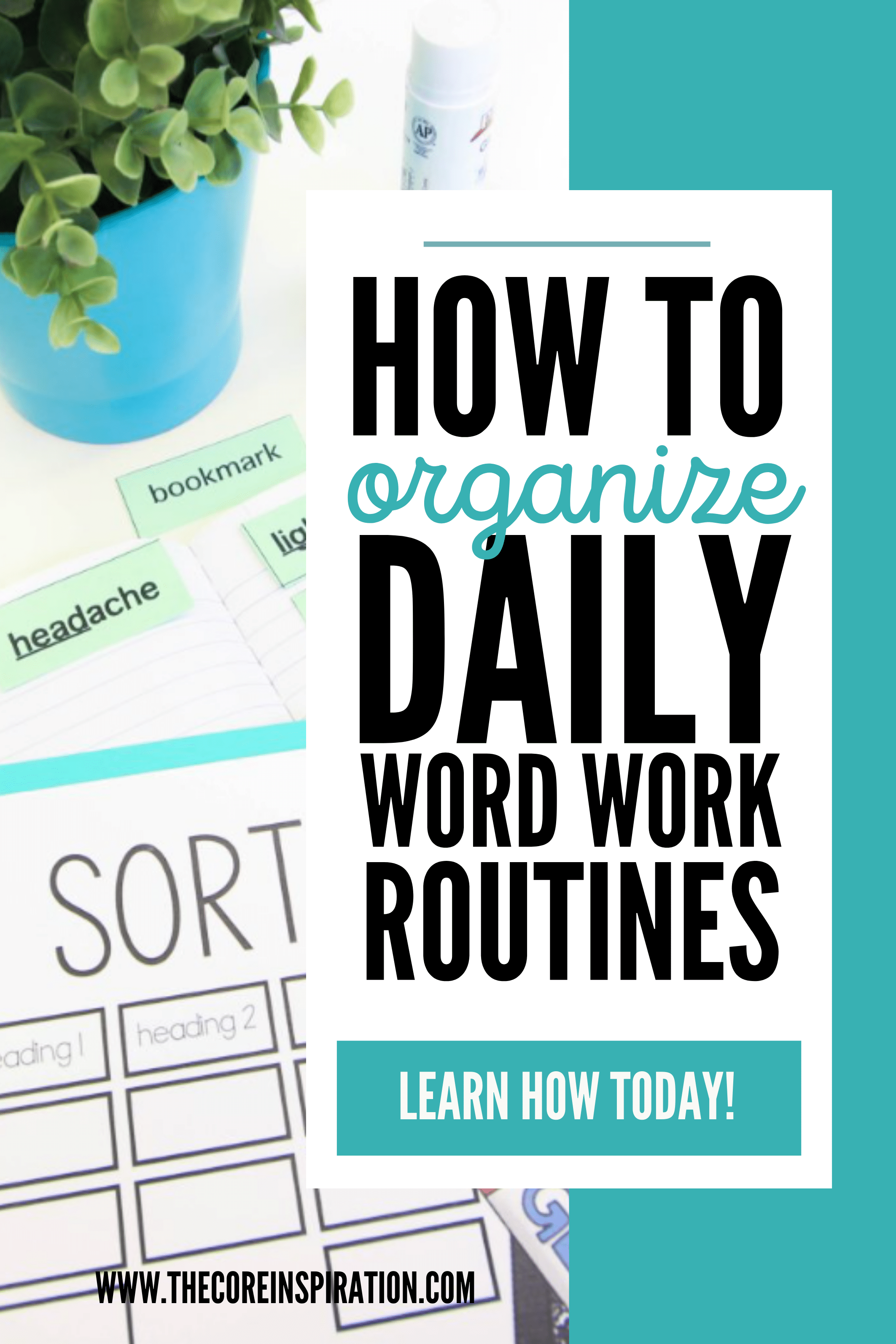

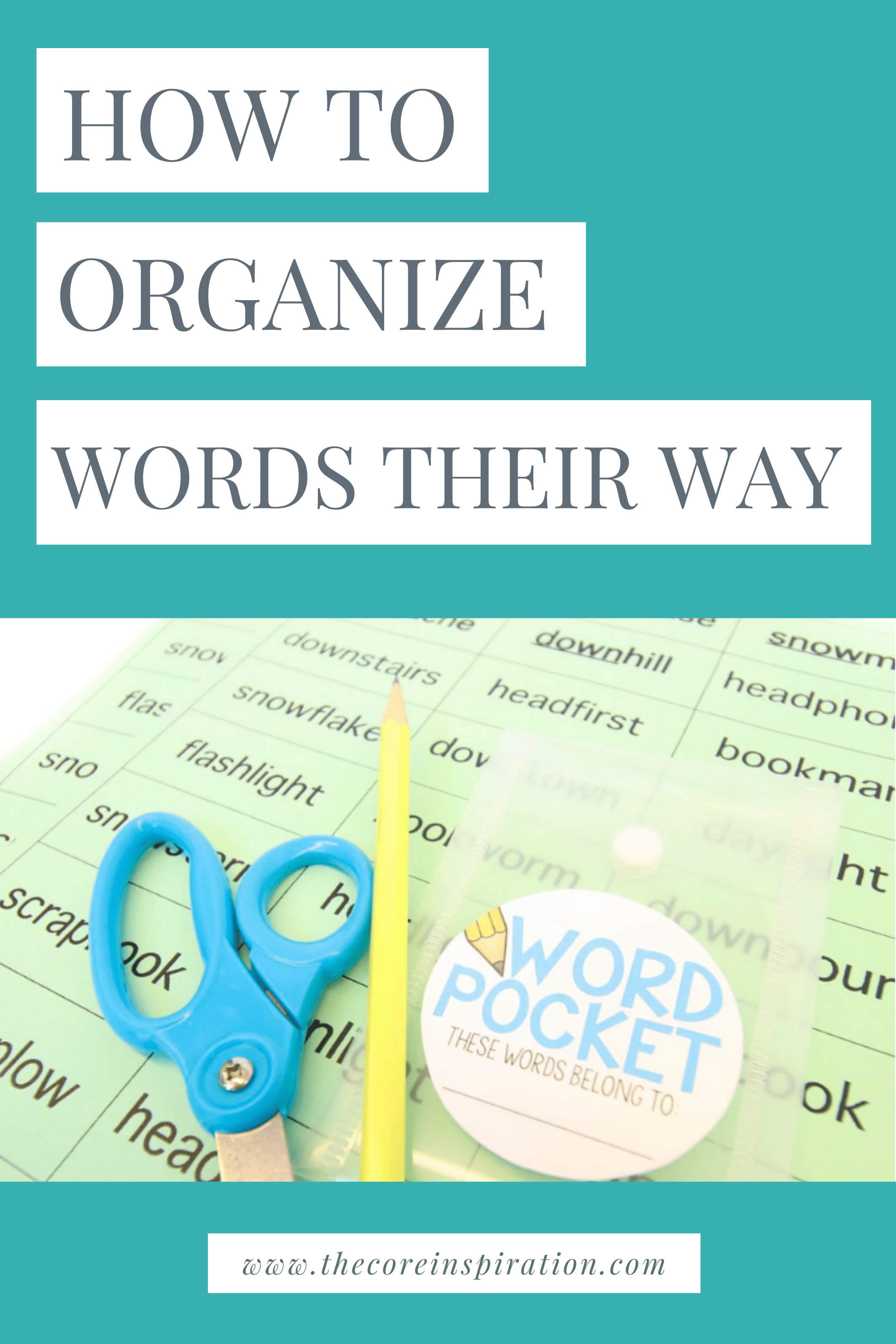
69 Responses
HI Laura,
I was wondering if you use the free Spelling City or the paid edition?
Hi Elle, our grade level uses the paid version because it allows us to track student scores and create assignments.
I just had to weigh in here. I don’t teach ELA any more, but when I did, I LOVED Words Their Way! What a wonderful, and easy, way to differentiate. Yes, it is tricky to get started. If you do it slowly, however, it goes much better. It also helps if you have a partner who knows how to implement the program ;-D
Jann, thank you for taking the time to share your encouragement! 🙂
There are a number of Words Their Way books. Which book do you use for 3rd Grade?
Hi Laura,
I use Within Word Patterns, Syllables and Affixes, and Derivational Relations.
Warmly,
Laura
Hi there, is that 3 different books that you are using?
I have the word study for phonics, vocabulary, and spelling instruction. How does that differ from the books you mentioned?
Hi Clara, yes I do use several different books. The book you mentioned is the overview of how to use Words Their Way, and the additional four books I use have a collection of sorts for each level.
Warmly,
Laura
Hello! This is amazing! Where did you bought your metal bin???
Hi Sabrina, thank you so much! The metal bin is from Office Depot. 🙂
Are you planning on sharing/selling your spelling lists you have created for your sorts??
You need to get them from Words Their Way- they put the lists together.
I’ve been intrigued by Words Their Way, but no one at my school uses it. Our current two spelling programs are very disappointing; your blog has convinced me to make the leap! I think it will be a perfect resource for my new combo class. I’d like to start by giving the spelling assessment to my 2nd and 3rd graders, evaluate their levels, and then buy the appropriate WTW books of lists. Does that sound reasonable? Can I find the assessments online, or do I need to purchase a book first? And finally, do you prefer composition books or spiral notebooks for doing daily word work? Thank you for any advice! Dana
Awesome! Yes, take the leap, you will not regret it. 🙂 You can find the Johnston’s assessment online here. I prefer composition books because they hold up better.
Warmly,
Laura
Thank you! You are inspirational, as always!
Curious of about using the spelling city…could you elaborate how/ you entered all the words and how to assign them by student groups?
Hi Christine,
Thank you for reaching out. After I create all my student accounts, there is a grouping feature in the paid version of Spelling City. This version also provides you with pre-loaded lists that you can import into your own account. All the Words Their Way lists are in their database, so you just have to import them into your account and they are super easy to assign to your groups. 🙂
Warmly,
Laura
Are the Words Their Way lists only available on the paid version?
Hi Lisa,
Yes, I believe the ability to download pre-loaded lists into your account is only available for paid accounts.
Laura
Do you have any resources or recommendations for word work games and activities (for fourth graders) to incorporate into the schedule?
Hi Eileen, do you use Words Their Way? I highly recommend it because it works in upper grades as well. Another resource that’s slightly different, but is used by our fourth grade team is Wordly Wise. I don’t have experience using this resource, so I can’t really speak to it, but they really seem to like it. 🙂
Warmly,
Laura
How do you find the Words Their Way lists on Spelling City? I’m searching with no luck.
Hi Marisa, I use the “Search Other User’s Lists” function to find my lists. 🙂
Can you walk me through how you set up your Spelling City lists? I can not figure this out! Thank you!
Hi Marisa, if you scroll down to the bottom of the site, you will see link “Videos/FAQs”. On that page, under the “Training Tutorial Videos for Spelling City” category you will see video tutorials for importing lists.
Warmly,
Laura
I really like the idea of using Spelling City to test students. But I was wondering if your students test on all the words in the sort each week or just a few? Thanks!
Hi Constance, thank you for reaching out. I do test my students on all the words on their list each week using Spelling City. 🙂
This is just what I was looking for! I have dabbled in Words Their Way for six-seven years. This year I am a little crunched for time, so I just have 20 minutes for word study in my first grade classroom. I love the plan you outlined! I am excited to get a little more organized this year for implementation! I’m unfamiliar with spelling city, so I’m hoping to have a parent help me with a try five with each group on Friday afternoons to help with efficiency!
Where do you find the little clear Word Pocket that we see in the pictures?
Hi Amber, you can find them at The Container Store. They are called business card snap pouches. 🙂
Does Spelling City test them on the exact same words as their list, or on different words using the same spelling pattern? Thanks!
Hi Chelsie, Spelling City tests them on the exact words from their list.
We are not given any time during the school day so I use the paid version of Spelling City for all activities and have them do the word sort/gluing as homework. I think our way seems more effective but my way is better than nothing! I am going to adopt your colored pages idea- love it.
Hi Heidi, do glad you found some new and helpful tips. 🙂 Wishing you and your students all the best.
Hello! What do you do if students take the test again on Monday and do not score an 80%? Do they move on? Thanks so much!
Hi Tiffany,
Yes if that were to happen, I’d still have them move on as many of the sorts build on previous skills and it’s likely that any skills missed that week would be solidified in weeks moving forward. I will also say that I’ve not had this happen yet…since the groups are differentiated and students are learning words that are just right for them, they usually pass the test with flying colors in two attempts. In most cases, students get 100% on their first attempt..that’s the beauty of differentiation. 🙂
Cheers!
Laura
Thank you so much! I am using WTW this year in a different way and my kids are not doing well on tests so I am excited to try your routine and spend more time on the words each week! Love your stuff!
Hi Laura, I love your ideas/activities for implementing WTW. We currently use the program, but when we assess we make the kids sort their words into the different categories. Do you find any problems with testing on Spelling City where they only have to spell the words rather than spell/sort or without using the extra words that accommodate the sorts?
Hi Katie,
Thank you for reaching out. Since I have them sort and glue right before the test, that helps me do a final assessment of their sorting understanding. The system definitely isn’t perfect, but it helps me differentiate far more than I would be able to if I were to give verbal assessments each week, which would be very time consuming (administering and grading). Hope this helps. 🙂
Warmly, Laura
Hello! You inspired me to implement Words Their Way in my classroom this school year! I will be teaching 3rd grade. Do I need to purchase all three volumes of the book?
Thank you!
Kristen
Hi Kristen,
How exciting that you’ll be starting Words Their Way this year. 🙂 As a third grade teacher, you will definitely need the Within Word Patterns book (that majority of your students will likely be working from this book for the bulk of the year), and the Syllables and Affixes book (some will move into these more advanced sorts by mid-year). You might want to start with those two, and order the Derivational Relations book only if you have a large group of advanced spellers. You will know this right away when you score the elementary spelling inventory.
I hope this is helpful as you gather your materials.
Warmly,
Laura
Hello! I love your method of Words their Way. I am using this in my third grade classroom this year. I have the Within Words book, but I am struggling when trying to figure out the sorts for my students. I have given the elementary assessment and grouped my classes. But where do I go from there? I have groups such as “Short Vowels, Digraphs, Inflected Endings, Common Long Vowels”. I do not see all the sorts that are labeled with this features. What am I doing wrong?
Hi There! Do you have this book? It will guide you through exactly how to find the sorts your students need. I believe chapter 3 cover this. 🙂
Warmly,
Laura
Thank you so much for sharing. I have used WTW for 3 years in many different routines, but I just haven’t found a routine that is time efficient and that isn’t overwhelming. I have found your post to be very inspirational. I was not planning to try WTW again this year but after reading your post I am going to give it one last go!!
Thank you!!
Tammi, thank you for taking the time to reach out. I am so happy to hear this post was helpful. I hope this routine works well for you and your students. Figuring out how to organize differentiated instruction is definitely a journey and one of the greatest challenges of our job. Wishing you all the best this year!
Warmly,
Laura
Hi Laura,
Do you really believe this program is helping the kids learn how to spell? My 4th grade son just got a 74% on a test in which he got 19/20 words spelled correctly. But since he didn’t place the words in the proper columns, the teacher marked off for each word not in the proper column. The logic seems insane to me, Both my husband and I have masters degrees (engineering, MBA and teaching) so we are not uneducated people. After reading your post about how difficult this program is to implement and teach, I just don’t think it’s worth it. Just wondering your thoughts!
Hi Jessica,
Yes, I do think this is a valuable program for supporting students with spelling development as well as decoding and fluency in reading. This program, like every differentiated program is difficult to implement, and it is absolutely “worth it” because it takes hard work to meet the unique needs of every student in our classrooms. Imagine if teachers decided not to differentiate instruction because it was too difficult. We would be back to a one-size-fits-all approach to instruction which is only beneficial to a very small fraction of student in the classroom. Differentiated instruction is immensely challenging to carry out successfully, and immensely rewarding for students because it gives them the opportunity to grow and learn in ways that help develop a deeper understanding of the concepts we teach.
If you have questions about the way your son’s assessment is scored, I would advise you direct your inquiry to his teacher as she will be able to explain the logic behind how she scores his progress toward mastery.
Laura
Thank you for taking the time to respond. I totally agree with you on the differentiated instruction so I definitely was not arguing that approach. To that point, my son has mentioned a friend of his now gets different words than the rest of the class due to his rate of learning. My son’s class has also implemented “WIN” which is “what I need” in which the kids are further separated into groups. Some groups are given extra help if needed but it also provides extra challenging work to the kids who excel. I also spoke with my sister who is a 5th grade teacher and she explained the difficulties in teaching something that is “new” and said when common core came to be, the teachers knew nothing about it but were expected to teach to it! So, I understand the challenges from the educator’s prospective. Regardless, it’s nothing I can change but I have helped my child learn how to take these tests now and he has scored 99% and 102% on his last 2 tests. I just really felt crushed that he studied so hard for a test, learned how to spell the words correctly (which I believe is the end goal of a spelling test) and his test score didn’t reflect that. Thank you and have a great day!
Thank you so much for this –
My co teacher and I have just started WTW, and are already feeling overwhelmed. Your advice is perfect and I especially love what you write about modifying quality programs. There is no one size fits all for students or teachers! I’m going to use your suggestions as a starting point and then tweak as needed. This is my 14th year teaching and I love receiving inspiration from my colleagues!
Best,
Valerie
Hi Valerie, thank you so much for taking the time to reach out. Yes! Modifying to meet the needs of the students you have in front of you is such an important thing to remember…but so easy to forget when you are tackling a new program. You and your team are amazing for providing students with differentiated instruction! Have fun seeing the growth they make this year. 🙂
Warmly,
Laura
Hi Laura,
How do you make adjustments to implementing Words Their Way with shortened weeks?
Do you have the kids double up on some of their activities or eliminate them?
Hi Betahanie, during short week, I skip WTW all together. 🙂
Hi there, I am just wondering where you get your “pockets” from. Can you provide a link?
Hi Jacquie, you can find the pockets I use here.
What a great plan for the very time consuming Words Their Way program. We use the Words Their Way workbook with the sorts already in them, which saves on copying. What is your opinion of these?
Thank you Diane. I don’t have any experience withe the workbooks, but I imagine they’d be helpful as long as they allow for proper differentiation within your class. 🙂
Hey Laura!
I love this resource, and it is making me feel so much better about implementing WTW this year. Thank you! I just purchased your TPT resource, and I saw you had a lot of fun activities on the digital choiceboard (stair write, etc.). How do you fit these choices into your weekly schedule you explained above? Thanks again!
Thank you Caroline! The digital activity board resource includes far more activities than I ever use, but I included them so there are options for teachers who already use those activities and need the image for them on their digital board. I took a poll on my Instagram account and those were the most commonly-requested activities. The only five activities I squeeze in from week to week are those included in this post. 🙂
Is this digital activity board in your TPT store?
Yes it is, you can find it here. 🙂
Hey! Thank you so much for this. I was wondering, do students do their activities in their note book? Or do you give out papers for their activities? I’m struggling by to decide if I should use a notebook for their word work or give weekly packets. I feel like notebooks would be easier to manage.
Hi Kimberly, I have them use notebooks. 🙂 Like you said – easier to manage!
Hi there! Thanks for all of these helpful tips! I have been using the Words their Way program for 6 years in my classroom and every year I am looking for new ways to improve how I implement it. In the past I have also used Spelling City for online assessment but it is no longer available. What do you use now? Vocabulary A-Z looks pricey! Thanks for any suggestions you have!
Hi Lindsey, thank you for reaching out. I am currently on maternity leave and am not used anything at the moment as a result. I have been in contact with Vocabulary A-Z about how we might be able to access the lists that I previous had uploaded to my account, and it sounds like the only way that’s possible is through a paid account and even then, those lists can only be shared with other accounts at the same school. It’s a real bummer they decided to limit that part of their service because it was so valuable to so many teachers. I will start researching alternative options and let you know when I find one. 🙂
Hi Laura!
I am exploring Spelling City and it looks like they collaborated with Vocabulary A-Z (for premium additions). Do you use this now? And if so, does the Vocabulary A-Z have the pre-loaded lists?
Would love to know your thoughts! Thanks for the great blog post.
Hey,
So I am aware of the WTW program and lists, but how do I accommodate my emergent spellers, using the concept sorts. What do I do with them? The book doesn’t really explain if I write the words for those pictures. I am beyond confused.
Hi Jamie, I always wrote the words on the picture cards myself. The book doesn’t make that recommendation, but it worked well for any emergent spellers I’ve taught. 🙂
I am a 2nd grade sub for a short period of time. Thank you for this step-by-step guide. It brings me a lot more confidence in my ability to deliver this instruction to my students.
You’re very welcome Daphne! Enjoy your 2nd grade sub position. 🙂